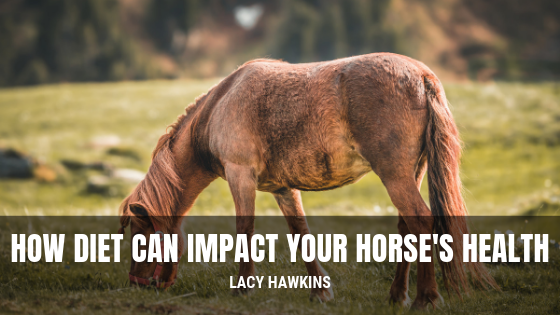Diet can have a major impact on health. That doesn’t end at humans; horses’ diets can play a major role in the quality of their life. Unfortunately, feeding your horse a nutritious diet is not as simple as letting it graze. To maintain your horse’s health, read on to find out more about what factors go into a healthy horse’s diet, as well as what can happen if you do not adjust your horse’s diet.
Nutrients
Every animal needs nutrients. Nutrients are what allows the body to function, so when there are too few (or too many) nutrients, the body is unable to do what it needs to do to maintain stasis. Horses need similar nutrients to humans, including water, protein, fats, carbohydrates, vitamins, and minerals. However, the levels of each are different for horses.
A horse that is about 500kg will need roughly 30-45 liters of water each day. Hay-fed horses will need more than grass-fed horses, as grass contains some of the water a horse will need. Yet, regardless of their feed, horses should have access to plenty of fresh water at all times.
For protein, a 500kg horse would need about 630g each day. They also need essential amino acids that their bodies do not produce. In addition, horses can benefit from fatty acids omega-3 and omega-6. Getting enough carbohydrates is usually not an issue for horses, assuming they are eating enough. Finally, horses need many vitamins and minerals, so it is a good idea to get your feed tested to ensure there is enough of both for your horse’s diet.
Food and Supplements
Ideally, a horse will get most of its nutrients from standard grass or hay. Yet, there aren’t always enough of certain nutrients to ensure a healthy lifestyle. A good option is to use vitamins to supplement grazing. You may also choose to use fortified hay instead, or complete feed for senior horses.
Grazing Time
The amount of time grazing can also have a significant impact on a horse’s wellbeing. A healthy horse should be allowed to graze freely throughout the day. Some horses with diseases may require limited grazing time so that they do not eat too many carbohydrates.
Consequences of Improper Diet
Feeding a horse an improper diet can lead to a multitude of problems. Over-supplementing can lead to ulcers or colic, for example. Under-supplementing may cause nutrient deficiencies that, over time, can cause damage to a horse’s bodily functions. Also, horses who are obese or have Equine Cushing’s Disease may need their grazing limited to prevent further complications.
The quality of life for your horse is dependent upon several things, but diet is a major component. Whether your horse is healthy or needs a special diet, make sure you take the time to investigate how you can improve your horse’s nutrition.
